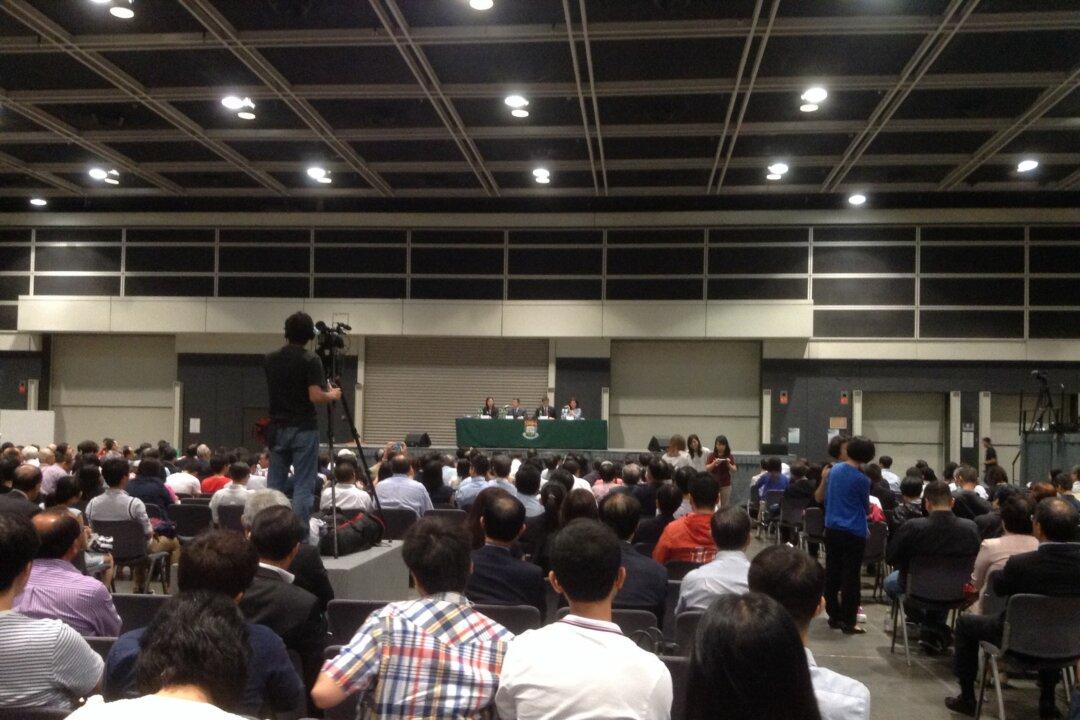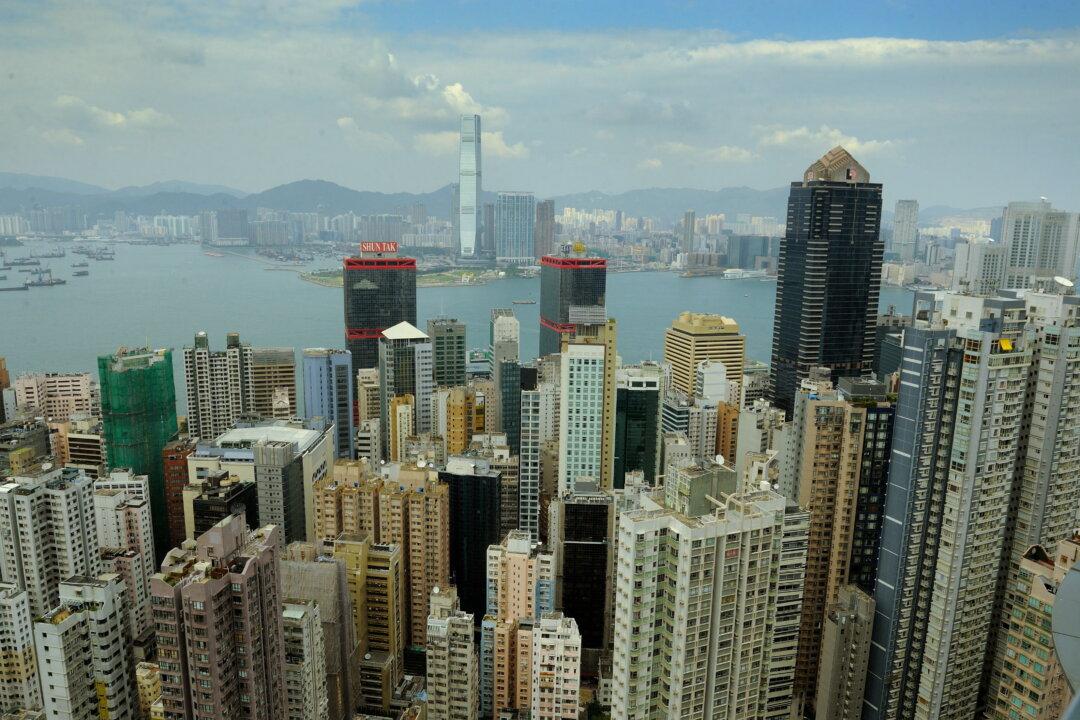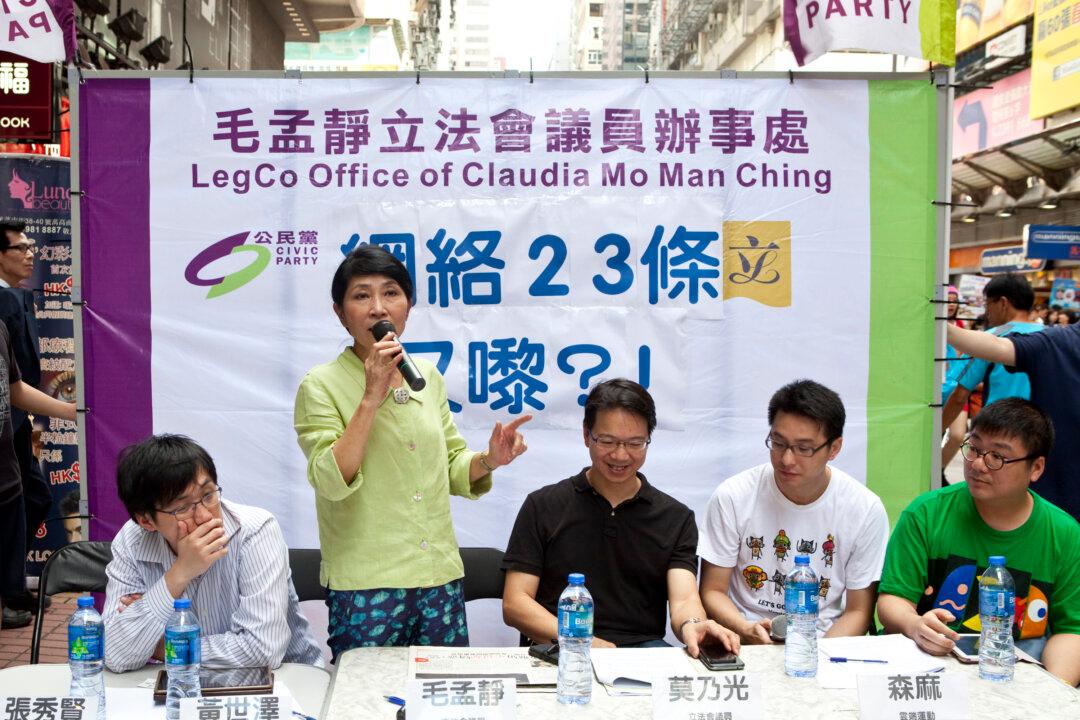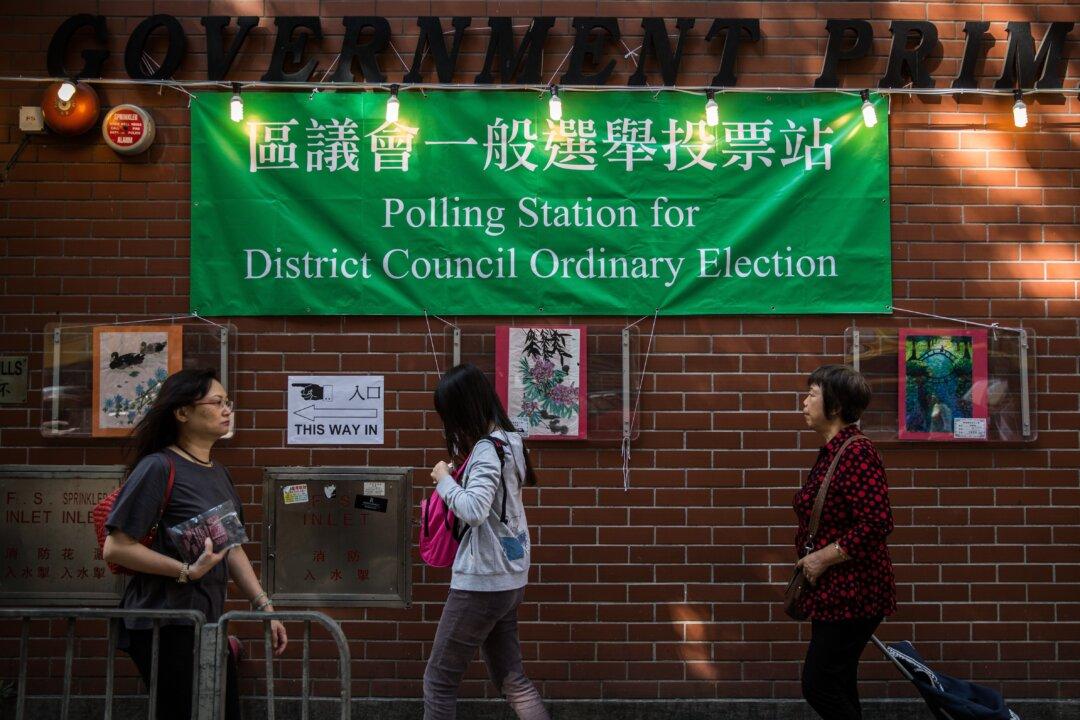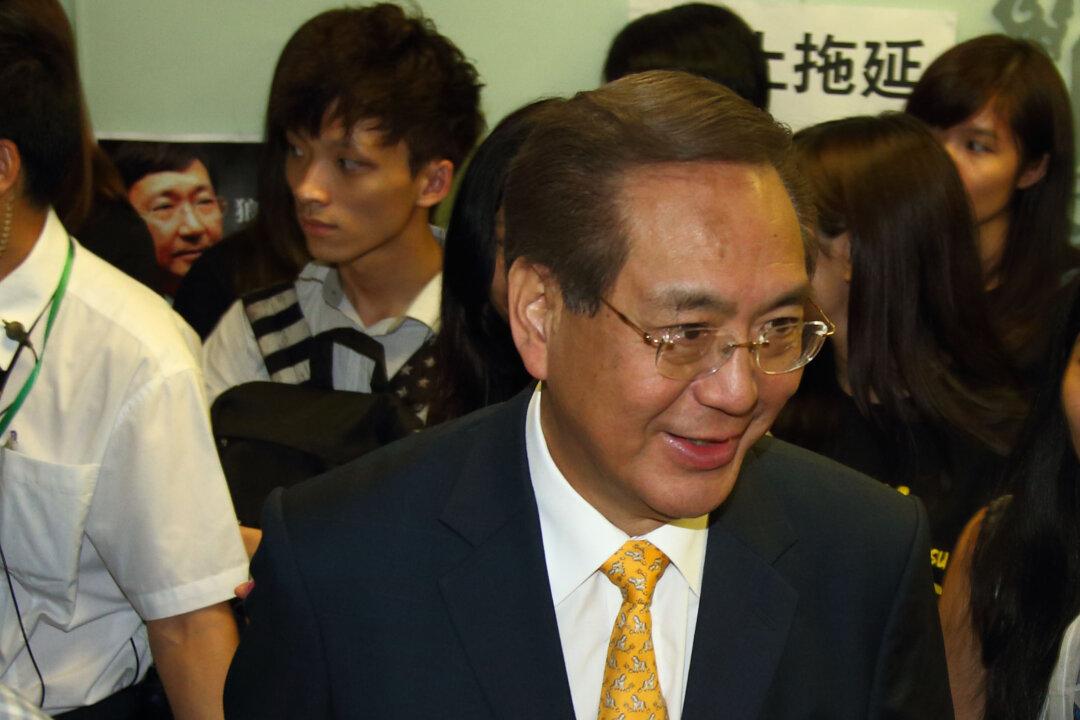HONG KONG—The recent scandal in which Hong Kong Chief Executive Leung Chun-ying is suspected to have interfered with the appointment of Professor Johannes Chan as pro vice-chancellor of the University of Hong Kong (HKU) has caused widespread concern in the territory.
In a recent radio interview, legislator James Tien Pei-chun claimed that the interference did not only come from the territory’s SAR government, but also from the Hong Kong Liaison Office.
Tien’s comments echoed the allegations made in an article written by Kevin Lau in the Ming Pao newspaper in July. In the article, Lau stated that parties close to the government had applied pressure on HKU council members behind the scenes to block Chan’s appointment.
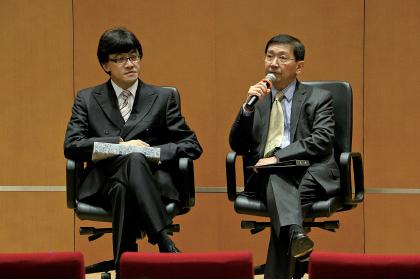
Professor Johannes Chan Man-mun (R) and Bar Association Chairman, Paul Shieh Wing-tai (L) attend the opening ceremony of HKU Faculty of Law. Chan's appointment as pro vice-chancellor of the University of Hong Kong has been interfered with by the CCP. Epoch Times
